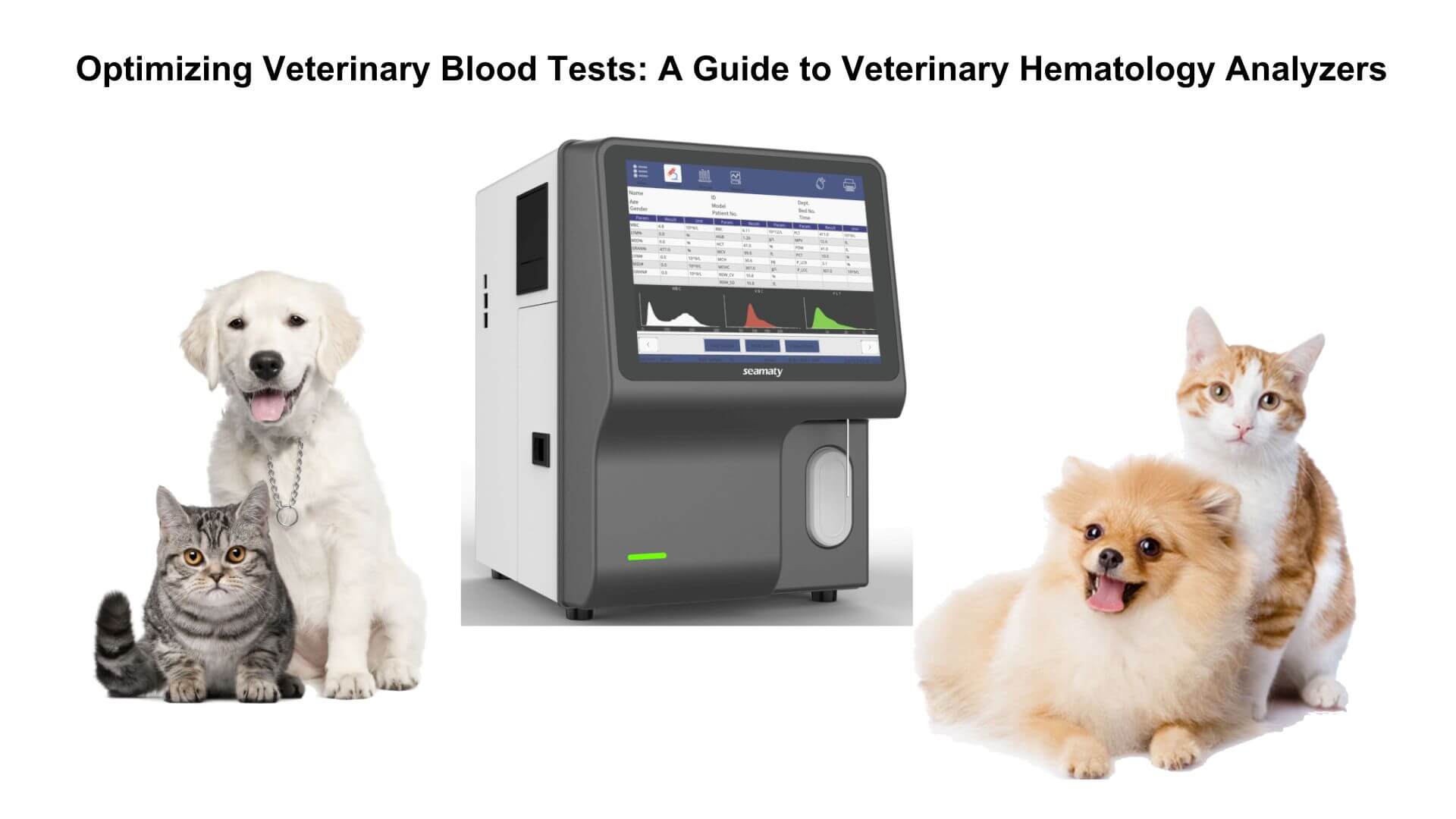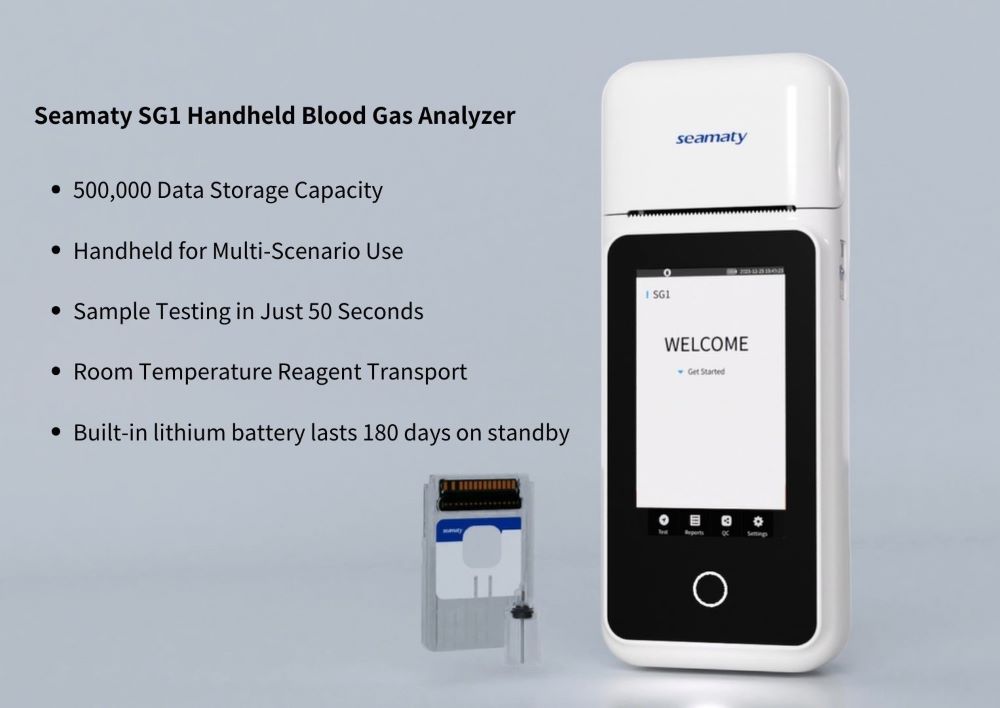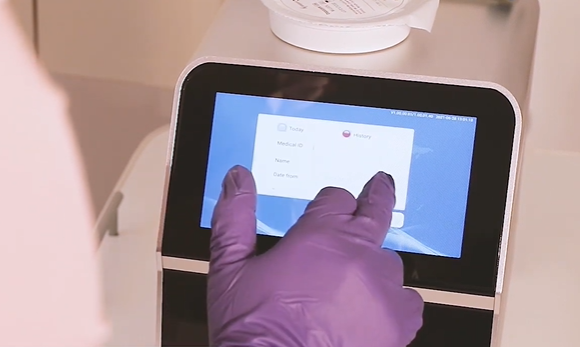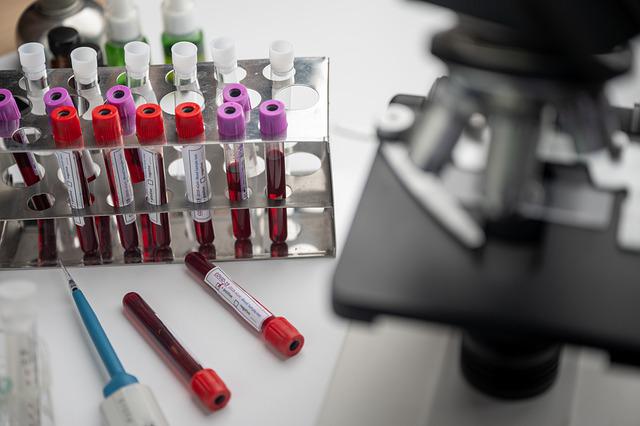release time:2023-10-09 14:10:25

Blood tests are a cornerstone of veterinary care, offering crucial insights into an animal's health and aiding in diagnoses and treatment plans. Hematology analyzers play a pivotal role in ensuring accurate and timely blood test results, significantly impacting the quality of veterinary care. This article serves as a comprehensive guide to understanding and optimizing veterinary blood tests through the effective use of hematology analyzers.
Hematology analyzers are sophisticated machines designed to analyze blood samples from animals. These machines provide critical information about various blood parameters, such as red blood cell count, white blood cell count, platelet count, and hemoglobin levels. Understanding these parameters is essential for diagnosing and monitoring the health of animals.
One of the significant advantages of utilizing hematology analyzers is the precision and consistency they offer in analyzing blood samples. The automated nature of these machines minimizes the likelihood of human error, resulting in highly accurate and reliable results. Veterinarians can confidently base their diagnoses and treatment decisions on these precise reports.
Automated hematology analyzers significantly reduce the time required for blood analysis. These machines can process a high volume of samples in a short period, expediting the diagnostic process. Quicker results enable veterinarians to promptly initiate appropriate treatment plans, potentially improving the prognosis for the animals under their care.
Efficient usage of reagents and smaller sample sizes contribute to cost savings for veterinary practices. Hematology analyzers optimize resource consumption, making them a cost-effective solution for veterinary clinics. This cost efficiency ensures that accurate blood testing remains accessible and affordable for pet owners.
Veterinary hematology analyzers share several key features that make them invaluable tools in modern veterinary practice:
When choosing a hematology analyzer for a veterinary practice, it's essential to consider specific factors:
Real-life examples demonstrate the tangible benefits of utilizing advanced hematology analyzers like Seamaty VBC30 and VBC50. These machines have revolutionized blood testing processes in veterinary practices, leading to quicker diagnoses and improved treatment outcomes for animal patients.
The field of veterinary hematology analysis is constantly evolving, with promising advancements on the horizon. From improved automation to enhanced analytical capabilities, these innovations will further optimize blood testing processes, ultimately benefitting veterinary care and the well-being of animals.
Veterinary hematology analyzers are indispensable tools that enhance the accuracy, efficiency, and cost-effectiveness of blood tests in veterinary practice. By selecting the right analyzer and leveraging its features, veterinarians can provide superior care to their animal patients. As technology continues to advance, embracing innovative solutions like Seamaty VBC30 and VBC50 ensures that the future of veterinary medicine is characterized by enhanced diagnostics and improved treatment outcomes for animals.

2024-04-15
Speed Up Blood Gas Testing with the Seamaty SG1 Analyzer! Get lab-quality results in just 50 seconds with this innovative handheld device. Learn how the SG1's technology, workflow, and design features deliver faster diagnoses and improve patient care.

2022-08-28
You never know what kinds of pets you will have at your clinic people have different pets with different needs. A vet has to diagnose and treat animals having a range of different conditions and issues. Vet instruments make things easy, and you can provide care and comfort to the suffering pet. The following veterinary instruments are the gadgets and tools that increase the precision of diagnosis with the veracity and effectiveness of different procedures and methods.

2022-03-18
As a practitioner in the in vitro diagnostics industry, blood is closely related to our products. Biochemical analysis, immunoassay, blood cell analysis, blood coagulation analysis, etc. are all dependent on blood.